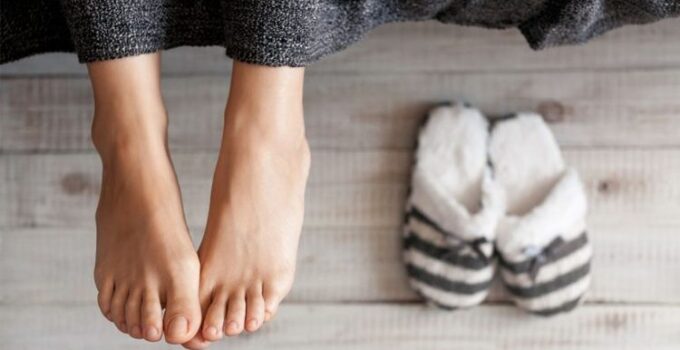Does your partner jump when your icy cold foot touches theirs in bed? You’re far from alone.
A lot of people struggle with cold feet all day, even during the summer months. Many assume that it’s just their curse and they learn to deal with it. They simply wear boots for 12 months of the year, and wrap their feet in warmth when they get home.
However, you don’t have to live with it. There is often a reason why your feet are cold, which means there is often something you can do about it.
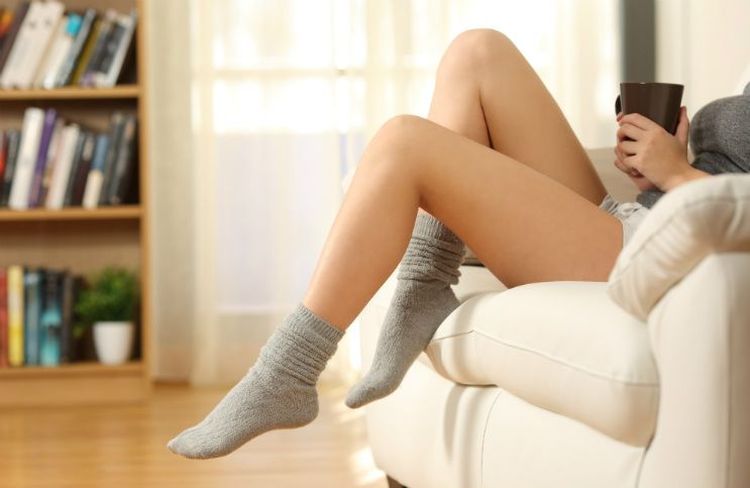
source:healthline.com
Here are the 5 most common reasons that your feet are habitually cold.
Page Contents
1. Your Floors are Simply Cold
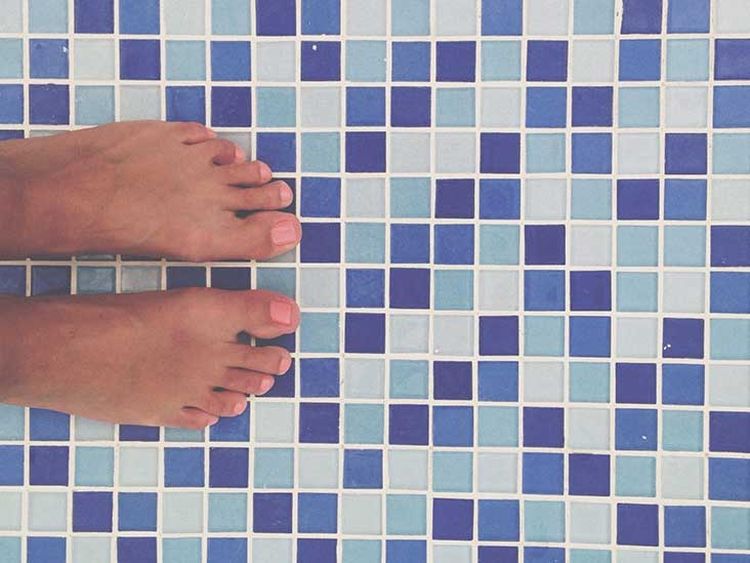
source:healthline.com
Sometimes the simplest answer is the right one. Your feet are always cold because your floors are always cold.
This is very common in older homes or country homes with poor (or no) insulation in the floors. It can also happen when you have an unheated basement or crawlspace below you.
Also, some flooring materials simply do a much better job of retaining heat than others:
- Carpet: Almost always the warmest, particularly when coupled with good insulation underneath it
- Cork: Often surprisingly warm and great for a kitchen
- Hardwood: Not as warm as cork or carpet, but performs well in a well-insulated home
- Vinyl: Can be warm when paired with padded underlayment. This can bring up the price
- Laminate: Like vinyl, this is pretty neutral and needs to be combined with under-padding
- Ceramic tile or stone: These are naturally cold. However, they do a great job of retaining heat when you install a radiant below-surface heating system
If you don’t have the money to replace your floors or install something under them, your best bet is simply to wear a high-quality sock to keep your feet warm and toasty.
For example, HeatHolders are 7 times warmer than regular cotton socks and nearly 3 times warmer than ordinary thermal socks. They come with a higher level of thermal overall grade (TOG), which means they’re better at retaining warmth.
2. Muscle Mass
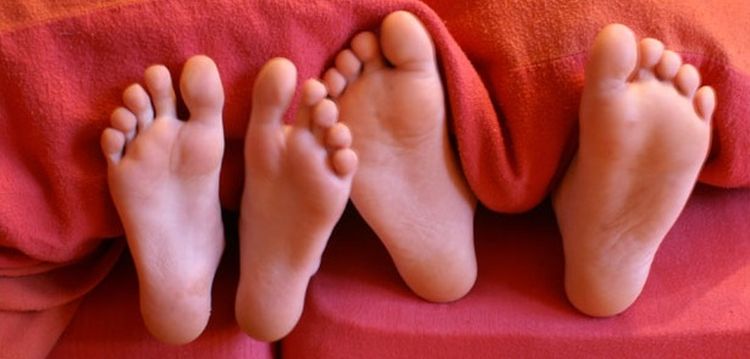
source:glam.com
We all have the same internal temperature.
However, people with less muscle will perceive the temperature in the room as colder because of their muscle mass to body surface area ratio. With less muscle, the thermal inputs in their body will signal to the brain that they find this environment cold.
This is why thinner people and the elderly are more prone to feeling cold indoors.
Now that the brain senses that this person is cold, the body activates to conserve heat. Vasoconstriction in the blood vessels throughout the hands and feet restrict the blood flow. Basically, your body slows down the blood flow in your hands and feet to keep your core warm.
If you don’t feel like adding body mass or going through the work to get “swole,” your best bet is simply to wear appropriate footwear.
3. You’re Not Getting Enough Sleep
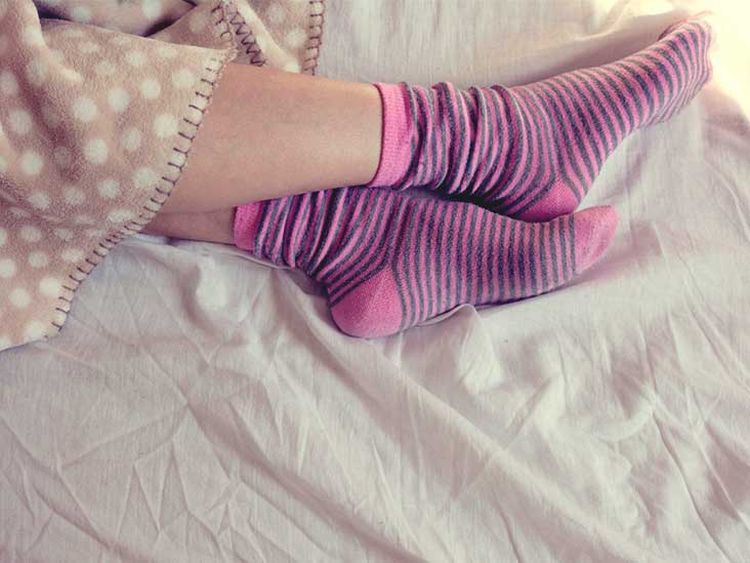
source:healthline.com
If you’re only getting about 5 hours of sleep per night these days, you’re going to feel it in a number of parts of your life.
You’re going to feel tired and groggy. You may also feel cold-like symptoms, or catch an actual cold because your immune system is compromised. Even if you don’t actually get sick, you will feel quite a bit colder. And as usual, your hands and feet will be the first place you feel it.
Sleep is crucial to most of your body’s activities, which includes regulating your body temperature. If you don’t spend enough time in your warm bed, you could feel cold for the rest of the day.
4. Poor Circulation
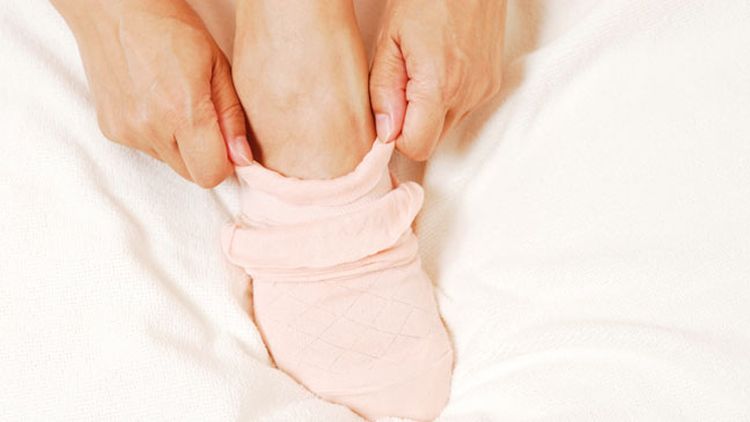
source:home.bt.com
Some people just assume they have bad circulation, which is why their hands and feet are always cold.
This could be true in some cases. However, bad circulation is most often the result of a bigger health issue. It can be dangerous to simply assume your bad circulation is just something you were born with.
Poor circulation could be a sign of:
Peripheral artery disease (PAD):
This is a circulatory condition that leads to the narrowing of the blood vessels and arteries in your legs. Your cold feet may also be accompanied by some tingling or numbness.
B-12 Deficiency:
Not having enough of this crucial vitamin can lead to low energy levels and feeling lethargic. It can also cause circulatory issues that lead to cold feet and hands.
Anemia:
Being anemic means your body doesn’t have enough red blood cells. This usually comes from the body being deprived of any number of crucial nutrients such as iron, or you may not be getting enough B-12 or folate.
If you’re suffering from any of those conditions, your cold feet are trying to warn you that you have a bigger problem that needs your immediate attention.
Your best bet is to see a doctor and never assume that your cold feet are simply your curse.
5. Raynaud’s disease
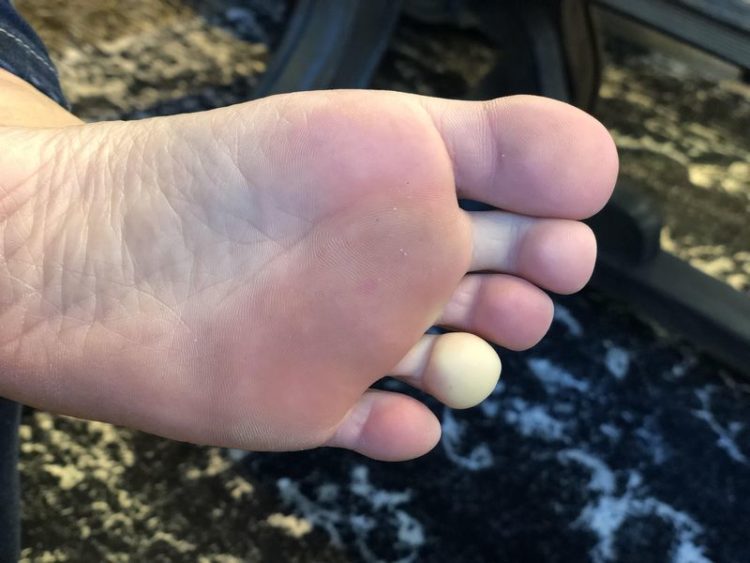
source:reddit.com
You could also be suffering from a condition called Raynaud’s disease. It leads to the small arteries in your hands and toes beginning to narrow. This will hurt the blood flow and circulation in your hands and feet, which is why they also feel cold.
The symptoms of Raynaud’s disease often show up when you’re in cold temperatures, or during times of high stress.
It most commonly shows up in your fingers and toes. But in some cases, people feel the symptoms in their lips, nose, nipples, and ears.
In most cases, cold feet can be fixed with some toasty socks or a warm bath. However, don’t miss the warning signs that your feet may be trying to send you. There could be a bigger health issue in play here.
If you’ve always had cold feet, speak to your doctor to see if there is an underlying cause. Or, if your feet have only recently started to feel cold, this is a definite sign that something has changed, and it could require your immediate attention.

